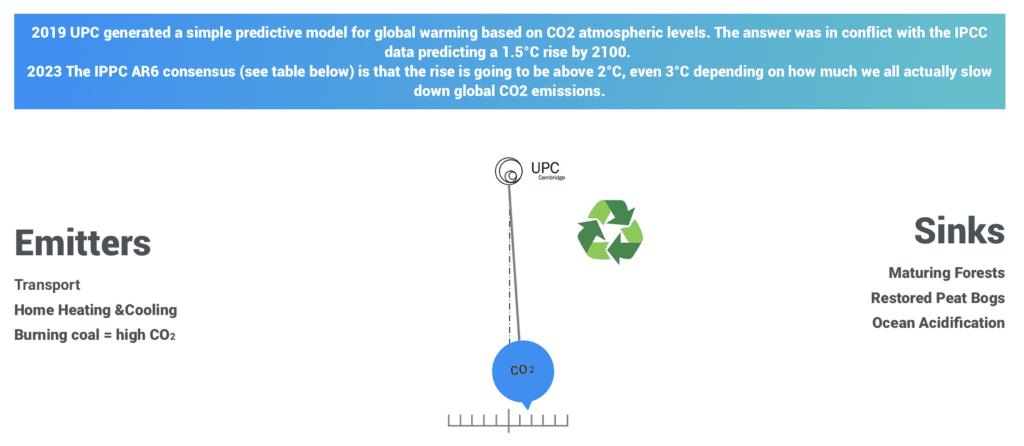Technology Insights
Climate Change
2019 UPC generated a simple predictive model for global warming based on CO2 atmospheric levels. The answer was in conflict with the IPCC data predicting a 1.5°C rise by 2100.
2023 The IPPC AR6 consensus (see table below) is that the rise is going to be above 2°C, even 3°C depending on how much we all actually slow down global CO2 emissions.
Emitters
Transport
Home Heating &Cooling
Burning coal = high CO2
Sinks
Maturing Forests
Restored Peat Bogs
Ocean Acidification

UK invested, over the last decades, in mostly off-shore wind farms that have enabled the UK electricity CO2 emissions to fall to circa 300gm/kWh at current consumption rates. Clearly substantially more electricity consumption (such as 32 million all-electric vehicles) will require more gas to be burnt at the UK power stations. Gas alone emits 600gm/kWh, Coal 1,100 gm/kWh. Optimising the balance of power station versus tail pipe emission is difficult. Personal life-style change is actually quicker and more effective than trying to force the greening of the economy.


Higher carbon living
Daily Commuting to work, lack of home insulation, over-housed. Single occupant car use, imported food.

Ultra-low carbon living
Work from home, highly insulated small homes?
Cycle/Walk, Eat local produce.
Small molecules, combination treatments, triples, 4 drug systems, soft mist nebuliser, low-gap propellants
